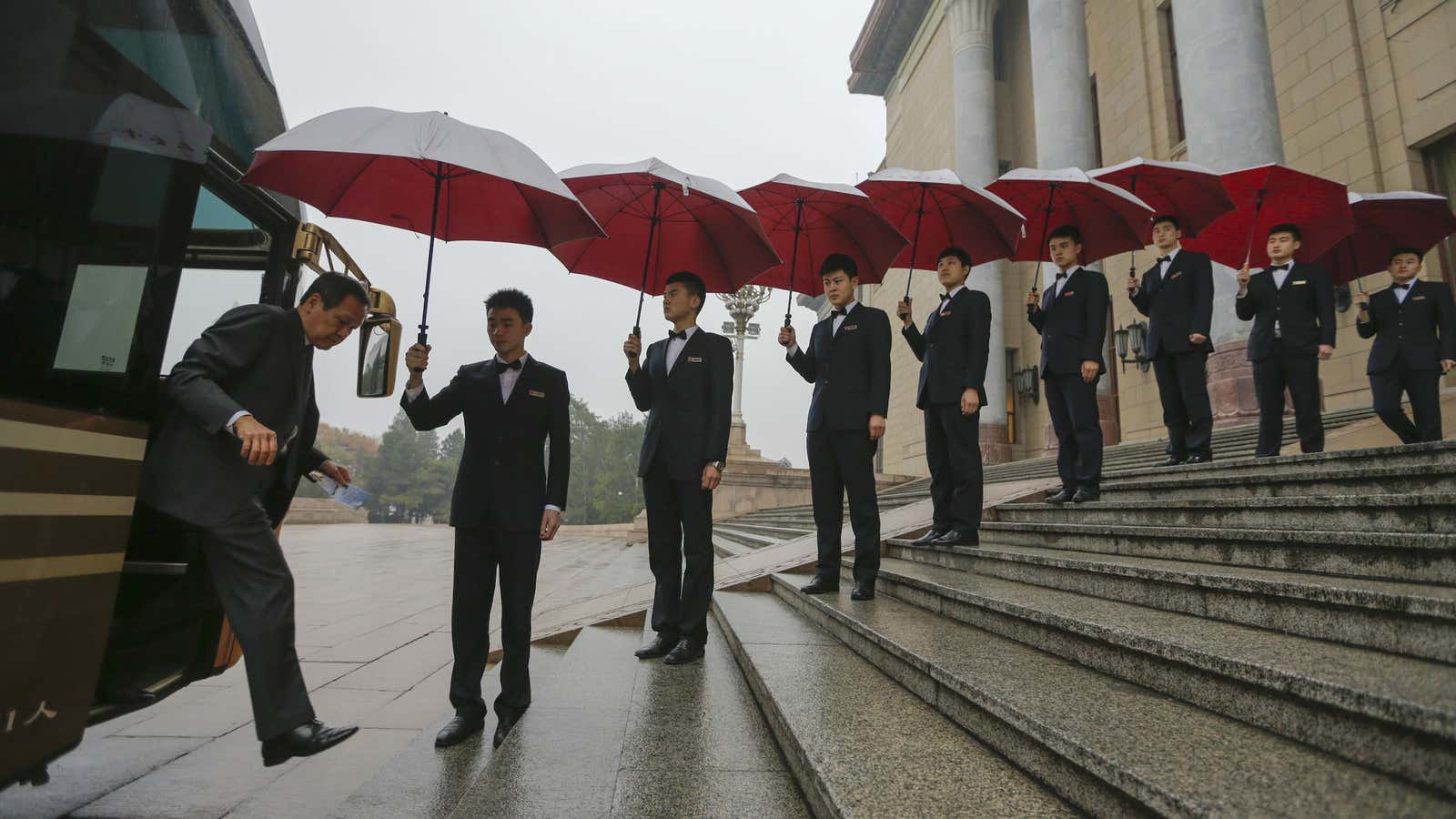A new political party in the name of fallen Chinese official Bo Xilai is attempting to take on the China’s communist party (CCP). On Nov. 6, a Chinese academic founded Zhi Xian; line-height: 1.5;”> (link in Chinese), which means the “the constitution is the supreme authority” party, with Bo as its “chairman for life.”
Zhi Xian’s future as a real political force is uncertain given that the CCP doesn’t allow opposing parties to form; China technically has eight non-communist parties but their main function is to advise the CCP, not act as independent political organizations. New political parties like the Democracy Party of China, have been attempted but shut down.
Still, the Zhi Xian party drives home an important message that’s been debated among Chinese intellectuals for a while: China doesn’t need an overhaul of its political system, it just needs to start following its existing constitution. It’s an idea that carries resonance especially as Chinese leaders prepare to release a communique this week outlining the country’s political and economic direction for the next decade. China’s constitution, the current version of which was approved in 1982 and has been revised a few times since, outlines a “socialist legal system” that protects citizens and also applies to party officials. “No organization or individual may enjoy the privilege of being above the Constitution and the law,” it says. It also includes guarantees for things like freedom of association, speech, and press—rights that are banned in practice. (Here’s the whole document in English.)
Given that the constitution was drafted and approved by the CCP, this idea would seem to be the most palatable, gradual path of political reform Chinese leaders could take. Even Zhi Xian isn’t trying to oppose the authority of the CCP. (“Our goal is to correct the ruling party’s violations of the constitution. We are not trying to stop one-party rule,” founder Wang Zheng, an associate professor in Beijing, told Bloomberg.”)
Instead, constitutionalism has become one of the most sensitive political topics for the party this year. In January, an editorial titled, “The Chinese Dream: A dream of constitutionalism” was censored so much journalists protested for days. A communique that circulated within the CCP in April banned the promotion of the concept. Why so controversial? According to a translation from the Asia Society’s China File, it smacks of Western values that undermine the CCP:
“Some people still use the phrase ‘constitutional dream’ to distort the Chinese dream of the great rejuvenation of the Chinese nation, saying things like ‘constitutional democracy is the only way out’ and ‘China should catch up with the rest of the world’s trend toward constitutional governance.’…Their goal is to use Western constitutional democracy to undermine the Party’s leadership, abolish the People’s Democracy, negate our country’s constitution as well as our established system and principles, and bring about a change of allegiance by bringing Western political systems to China.”
Bo hasn’t responded to the party’s invitation to be chairman, but Wang says she’s taking that as a sign of “silent approval.” That’s not likely to be the case with the CCP.
